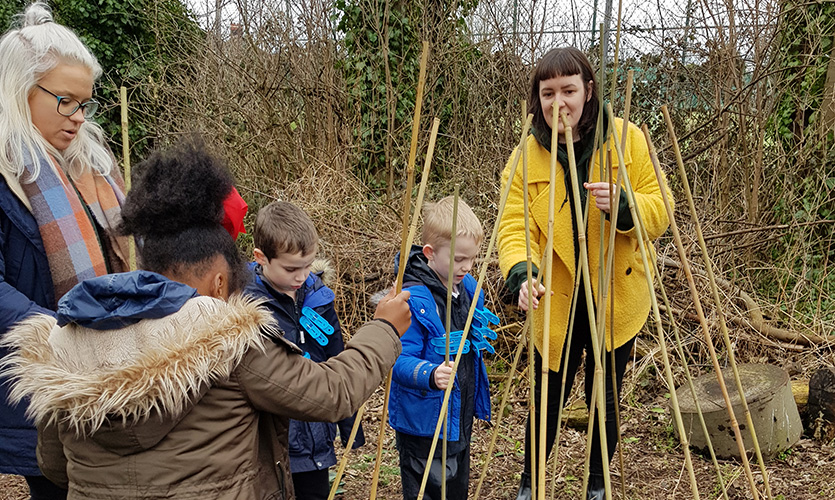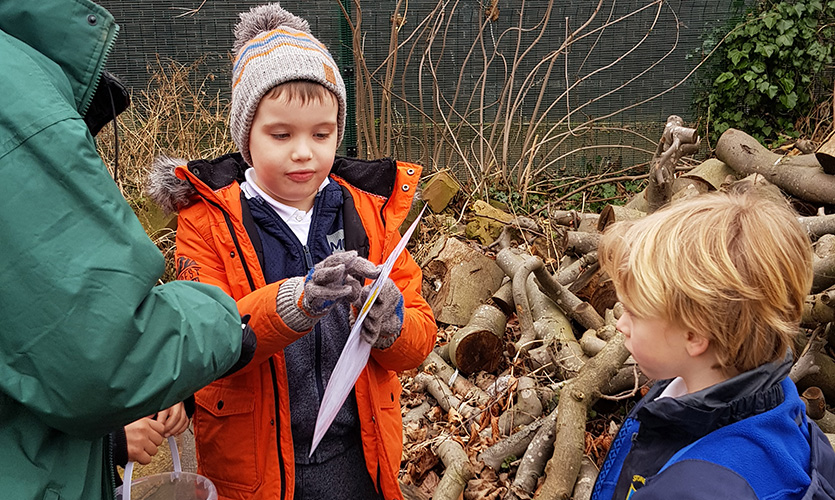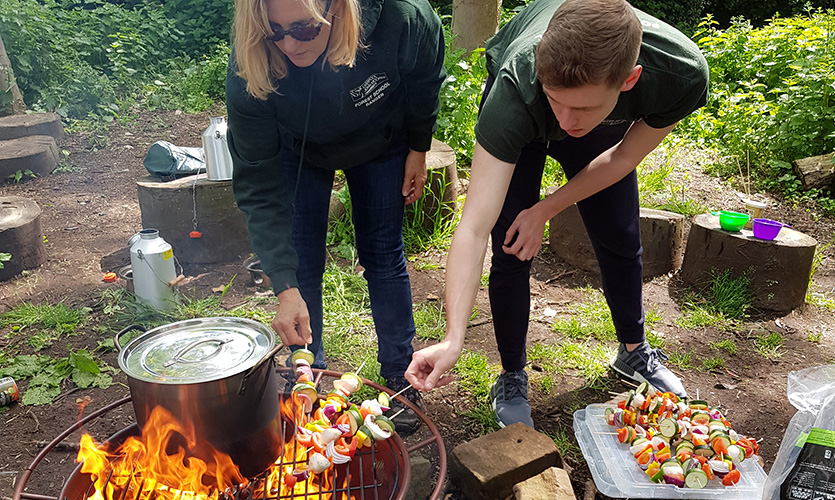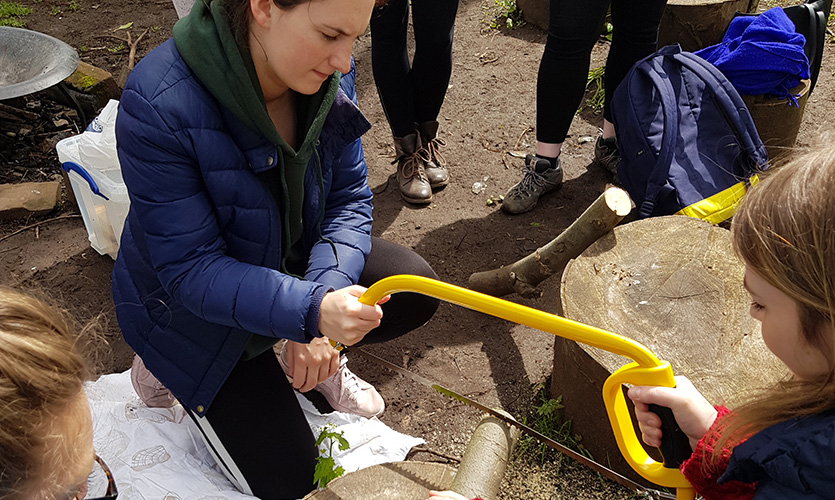Forest School improves Liverpool children's access to nature
Forest School improves Liverpool children's access to nature
From flat pack furniture to hygge, Scandinavians are pretty good at coming up with better approaches to living. Forest School is another example of an innovative Scandi concept.
So what is Forest School? Essentially it’s an approach to teaching that supports learners’ holistic development in order to build their independence, self-confidence and social skills. Hands-on, active learning experiences take place in natural environments, typically woodlands.
LJMU is unique among higher education providers in that it embeds Forest School training within its initial teacher training programme – qualifying trainee teachers to deliver Forest School upon completion of their programme.
We catch up with Dr Avril Rowley, senior lecturer in primary education and project lead for the Forest School programme at LJMU, to find out more.
How widespread is Forest School within Liverpool?
“It is not actually part of the National Curriculum – it’s an additional, optional part that some schools decide to take up, but more and more schools are taking it up, especially in Liverpool. Because it's such a focus for schools now, it’s really important that our trainee teachers learn how to teach it as well, so that’s why we’ve included it as part of our initial teacher training programme”
Where is the Forest School at LJMU and how did it start?
“In 2015, we had help from the Conservation Volunteers to clear an area at IM Marsh which used to be the site of a ski slope. Mersey Forest and Community by Nature helped us design the site and we continue to work with them. In 2016, we started Forest School. Having a designated Forest School embedded in a teacher training programme is quite unusual.”
Can all ages take part?
“It is mainly primary schools who take part in Forest School at the moment. I would love to see it in secondary schools as well because it has benefits for older children. An area we are also exploring is the impact on Forest School on young people and adults as part of a lifelong learning programme that is beneficial on so many levels.”

What do participants get up to at the LJMU Forest School?
“They work in teams to build dens which helps develop their problem solving and cooperation skills. They learn independence and encounter risk by learning to use knives to make objects such as whistles from wood; they light fires – all in a controlled environment – the idea is the more you expose children to risk the more resilient they are; the more they can cope with making decisions in slightly more stressful situations. They also do arts and crafts using natural materials they might find in the Forest School environment. They cook outside – making stew and toasting marshmallows on the fire they have helped to build. So a lot of it is based on using the outdoors as much as possible, encouraging a love of nature, and appreciation of it – that desire to preserve it as well.”
There’s obviously a strong conservation message. What specific environmental activities are the children tasked with?
“Staff will place things in the Forest School environment that shouldn’t be there so that the children will find the odd things out and explain to the group why they shouldn’t be there and what could be done about it. This raises awareness of the natural surroundings and how to preserve the environment. The children will look at how things grow, find mini-beasts under rocks and logs and learn an appreciation of how that all fits together as an ecosystem.”
There is a generation of people that lost an understanding of how to just be outside, programmes like this and similar programmes, can change the whole way a family interacts and how they spend their leisure time.”
What other skills do participants develop?
“They learn about wellbeing, mindfulness, spending time just being in the moment, focusing and enjoying different aspects of the outdoors. It is also great for developing dexterity, motor skills and physical literacy. In fact a recent study revealed that children on Forest School days are more active than they are in a PE lesson.”
Why would you recommend Forest School?
“Forest School sessions help participants build confidence, independence and team working skills. Studies suggest that learning outside in general is beneficial due to the novelty of being away from the classroom, the interaction with others, the fresh air and generally being active in a natural setting – we are designed to be in nature, so we thrive in natural settings. It is also beneficial for our trainee teachers as they practice at working in these environments. Studies have shown that teachers involved in Forest School are more imaginative, they feel less stressed and their self confidence in teaching is boosted – it’s a win-win for everyone really.”
If you’re interested in training to teach, why not take a look at the courses available within the School of Education?






